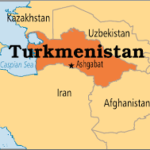WORLD TUBERCULOSIS DAY

Each year, World TB Day is observed on March 24 to create awareness and to support world-wide efforts to eliminate this disease. This annual event commemorates the date in 1882 when Dr. Robert Koch announced his discovery of Mycobacterium tuberculosis, the bacillus that causes TB. This year’s 2016 World TB Day theme is Unite to End TB.
Tuberculosis (TB) is caused by a bacterium called Mycobacterium tuberculosis. The bacteria usually attack the lungs, but TB bacteria can attack any part of the body such as the kidney, spine, and brain. Not everyone infected with TB bacteria becomes sick. As a result, two TB-related conditions exist: latent TB infection (LTBI) and TB disease. If not treated properly, TB disease can be fatal. Tuberculosis is curable and preventable.
TB is spread from person to person through the air. When people with lung TB cough, sneeze or spit, they propel the TB germs into the air. A person needs to inhale only a few of these germs to become infected. People infected with TB bacteria have a 10% lifetime risk of falling ill with TB. However, persons with compromised immune systems, such as people living with HIV, malnutrition or diabetes, or people who use tobacco, have a much higher risk of falling ill.
When a person develops active TB disease, the symptoms (cough, fever, night sweats, weight loss etc.) may be mild for many months. This can lead to delays in seeking care, and results in transmission of the bacteria to others. People with active TB can infect 10-15 other people through close contact over the course of a year.
Tuberculosis in India continues to be the leading cause of death from communicable diseases. With 1,000 deaths per day or two persons succumbing to this deadly lung disease every three minute, 2.2 million TB cases occur in India every year. It is also estimated that there 3.5 million are sputum positive (presence of tuberculosis bacteria in sputum sample). However, with successful implementation of DOTS in India, there has been a significant rise in overall treatment rate. DOTS – Directly Observed Treatment, Short-Course is the WHO-recommended strategy for tuberculosis control. It provides a definite cure for tuberculosis with a treatment course lasting from six to eight months. It is available free of cost to the patients in government hospitals in the whole nation.
In India, the Revised National TB control programme (RNTCP) shifts the responsibility for cure from the patient to the health system. DOTS has been shown to prevent the occurrence of multi-drug resistant tuberculosis (MDRTB). It also reverses the trend of MDRTB in the suspected population and can cure TB even in HIV-positive patients.






0 Comments